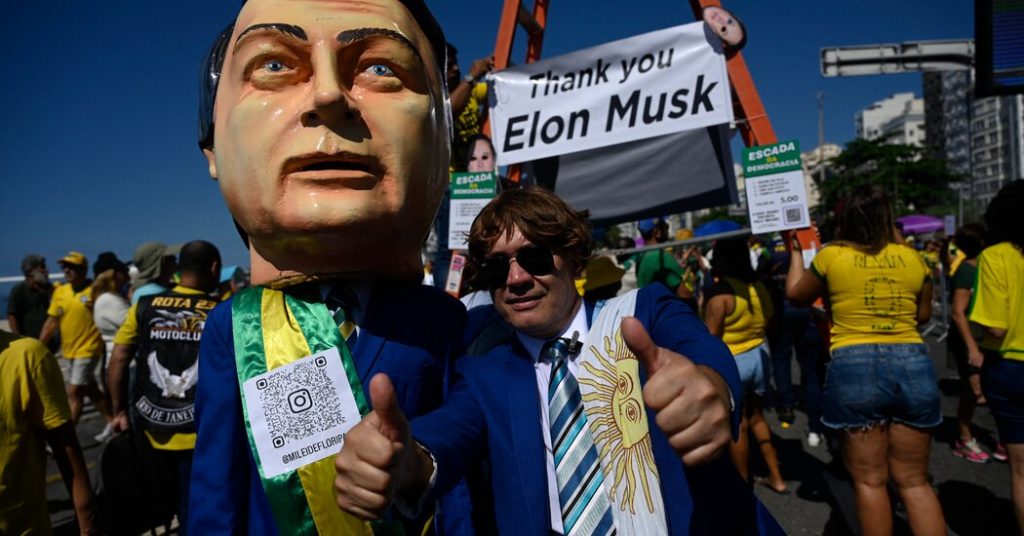The political movement behind Brazil’s far-right former president, Jair Bolsonaro, was recently struggling – he had been voted out of office, ruled ineligible to run in the next election, and was the subject of deepening criminal investigations. However, a sudden surge of energy and momentum has been injected into Bolsonaro’s movement, thanks to the support of Elon Musk and the Republican Party. Musk and House Republicans have criticized Brazilian Supreme Court Justice Alexandre de Moraes for blocking over 100 social media accounts in Brazil, many belonging to right-wing pundits and lawmakers questioning Bolsonaro’s election loss. Moraes claims he is protecting Brazil’s democracy against a potential coup planned by Bolsonaro and his allies.
Musk has referred to Moraes as a “dictator” and accused him of silencing conservative voices, while House Republicans have highlighted the issue as a “crisis of democracy, freedom, and rule of law”. This collaboration has sparked significant political waves in Brazil, shifting the nation’s news cycle from revelations about Bolsonaro’s criminal investigations towards a debate on whether the Brazilian Supreme Court is stifling free speech. Brazilian media have extensively covered the issue, with leading newspapers and magazines calling on Moraes to stop censorship.
Brazil’s Congress recently killed a bill on combating online misinformation, and the Supreme Court announced it would rule on a lawsuit challenging Brazil’s main internet law. Elon Musk’s influence has had a swift impact on Brazilian politics, with Bolsonaro capitalizing on the attention from his foreign allies. Bolsonaro has held rallies attacking what he views as political persecution and has thanked his supporters, receiving a positive reception from his followers and supporters.
Despite the support from Musk and the Republicans, Brazil’s left views their actions as twisting facts to attack the country’s institutions. President Lula da Silva criticized Musk as an “American businessman” meddling in Brazil’s affairs. The debate stems from Moraes’ efforts to combat online content promoting election misinformation and attacks on democratic institutions, which have led to heated discussions over whether his actions pose a threat to Brazil’s democracy.
Moraes, criticized for ordering the suspension of popular right-wing pundits’ accounts, defends his actions as necessary to protect Brazil’s democracy from threats by Bolsonaro and his supporters. While social networks often block content violating their policies, Moraes has ordered the removal of content that would typically be allowed, leading to a debate on the limits of free speech and democracy in Brazil.
A recent hearing in Congress saw Republicans backing Bolsonaro’s grievances against Moraes and the Supreme Court, while Democrats argued that the issue should be decided by the Brazilian people. Some analysts believe that Moraes’ actions may be violating Brazilians’ rights, including internet law expert Ronaldo Lemos, who no longer sees an extreme threat to democracy justifying Moraes’ aggressive approach. The debate surrounding the role of the Brazilian courts in handling free speech and democracy continues to intensify, with significant implications for the nation’s future political landscape.


